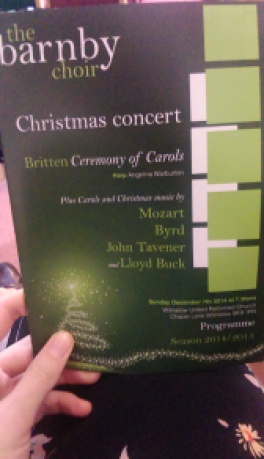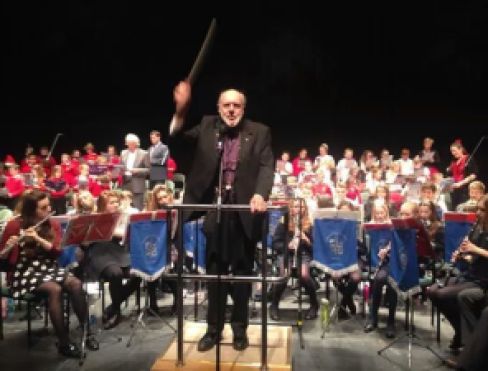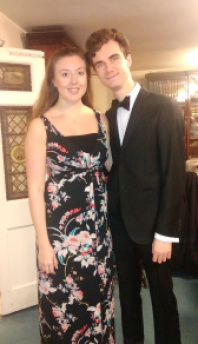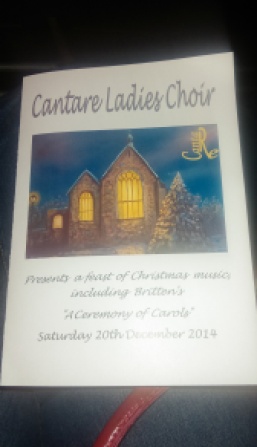We are living through an age of austerity. Spending cuts threaten the funding that major orchestras rely on. Cuts to school budgets mean that music and other arts subjects get side-lined in order to prioritise subjects like maths, science, and english. Yet it has been shown that actually increasing the amount of music in the timetable is hugely beneficial for students and increases their performance in all subjects. Check out what happened at this school in Bradford.
As the cost of living feels like it’s getting higher all the time and wages don’t keep up with inflation, people are feeling the pinch, and possibly not going to concerts or hiring live musicians for their events in an attempt to save money.
So what can we as ordinary citizens do to help support the arts? Here are a few ideas:
Attend more concerts
Perhaps this is the most obvious and immediate way we can help. If you live in a big city like London or Manchester, chances are there are free concerts all over the place. Here in Manchester there is a huge choice of free concerts, from organ recitals at St. Ann’s Church in the city centre to lunchtime concerts at Chetham’s and the Royal Northern College of Music. If jazz is more your thing, find your local jazz club, look on the website and find something you fancy.
Have a think about where you live, is there a local orchestra that perhaps does a few concerts each season? Could you perhaps consider attending one?
Of course, there’s more to the arts than just music. Many art galleries now allow you to look around for free, and theatres will probably have cheap matinee tickets on offer.
You could even set yourself a challenge of seeing something creative once or twice a month. Try to go for things outside what you would normally go to. Avid Handel fan? Go to a Gospel Choir concert. More of a jazzer? Go and see a Mahler symphony. Only ever seen Andrew Lloyd-Webber shows in the theatre? Try some Gilbert & Sullivan. You might find a new passion. At the very least, you’ll have more to talk about the following day than who got kicked off X-factor or what time your cat stayed out until. Going to see new things broadens the mind and you know that you are doing your bit to support hard-working, creative people.
Hire live musicians for your event
This may seem obvious, but having a live musician playing during your wedding/social function is far, far superior than having someone press ‘play’ on a cd player. It adds so much to the atmosphere that someone is there, playing just for you. Plus, you are supporting that person in a very real way. So please, hire musicians, pay them a decent fee, and perhaps give them snacks at your event? Maybe even talk to them at your event and thank them for playing for you? These things make such a difference – trust me.
While we’re on this topic, please, never, EVER, ask a professional musician to play for free (or worse, purely for the ‘exposure’). It’s insulting and completely undermines the fact that we have trained for years to play to a professional standard, and we deserve to be remunerated as such. For more details see the MU page http://www.worknotplay.co.uk/
Get invovled in the creative process
The internet really is an amazing place. Most of us are familiar with crowdfunding, where anyone can donate towards a creative project to help it get off the ground, and in turn they receive a reward and a glimpse into behind the scenes of the project itself.
As well as crowdfunding, there is a website called Patreon where you can support creatives on an ongoing basis – rather than for one big project as you do with crowdfunding. You can either donate monthly or per piece of content released (with a monthly cap so you don’t donate any more than you want to). Donations are generally much smaller (say $1-5 dollars) and patrons have access to a ‘patron-only feed’ of news and behind-the-scenes updates of the creative process.
My Patreon page is geared around making videos of harp pieces, both on and off the exam syllabus. Rewards include having your request played, recorded and uploaded, early access to videos and blog posts, and credits at the end of my videos.
Encourage your kids to get creative
Whether it’s playing a musical instrument, taking them to a dance class, or encouraging them to perform in the school play, encouraging kids to get involved with the arts will do wonders for their confidence and academic achievement (assuming of course that they don’t actively hate it – don’t force anyone here – keyword is encourage). Many musical organisations now place a lot of focus on outreach work, bringing music into the community and enabling people to get involved who normally wouldn’t be able to. See what’s going on in your local area, and if you are a musician and have the opportunity to get involved, do it.
Encouraging kids to learn an instrument may lead to them finding their passion in life, or at the very least, might improve their grades and give them an interest in music that they otherwise would not have had. Regular practise also encourages self-discipline and gives them time away from their phones, which we could probably all do with.
If there is not much music going on in your area, it might be time to…
Get vocal!
If you think your child’s school needs more music provision, tell them. If your local music service is desperately in need of investment, how about writing to your local MP to let them know how important this is to you? Would you love to go to more orchestral concerts but find that you can’t afford the ticket price? Write to them.
Musicians: see if you can join some sort of trade union (I’m in the MU but have heard lots of good things about ISM too). Get involved in the decision-making process and have your voice heard.
People aren’t psychic, and if they don’t realise there’s a problem, nothing will change.
If we value the arts in our society, we must look after them and invest in them. It makes all of our lives richer.
I really hope this has given you some ideas of ways we can support the arts and have our lives enriched in the process. I’m aware that this has been a bit of a long post! Thank you for reading and well done if you’re still here. A big thank you as well to those of you who contributed ideas via facebook and twitter. If I’ve missed anything, please do speak up in the comments. Let’s start a conversation.
Chat soon,
Ax
















